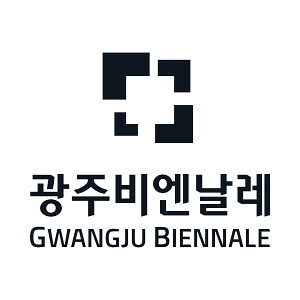April 20–November 24, 2024
Via Giuseppe Garibaldi, 1814
30122 Venice
Italy
On view at the Il Giardino Bianco Art Space in Venice, Italy, the Gwangju Biennale’s 30th-anniversary archive exhibition Madang: Where We Become Us has captured international attention since its opening on April 20. Park Yang-woo, President of the Gwangju Biennale Foundation, shares that the exhibition has successfully amplified the spirit of Gwangju to the world, echoing the institution’s goal to explore contemporary issues and discussions through themed exhibitions. To accompany this official Collateral Event at the 60th International Art Exhibition of La Biennale di Venezia, the Foundation initiated an internship program in partnership with Ca’ Foscari University in Venice, further fostering connections in the local community.
The exhibition has attracted more than 10,000 visitors from across the globe, including key opinion leaders in the art world such as Nicolas Bourriaud, Artistic Director of the 15th Gwangju Biennale; Cecilia Alemani, Artistic Director of the 59th Venice Biennale; Jacob Fabricius, Co-Artistic Director of the 60th Venice Biennale’s Korea Pavilion; and Seolhui Lee, Chief Curator of Kunsthal Aarhus in Denmark and former curator at Seoul Museum of Art.
At the opening ceremony on April 18, a jumeokbap (a type of traditional Korean rice ball) performance symbolizing the Gwangju community honored the May 18 Gwangju Democratization Movement. The historically significant food was recreated live on site and shared among event attendees, reviving the spirit of solidarity and community from 30 years ago. At the exhibition hall, Tin Pot from the May 18 Archives symbolized the unity of the Gwangju community, as it was used by mothers in the city during the Movement to store the rice balls in order to distribute them to the civilian militia.
The Gwangju Biennale Foundation launched an internship program in Venice on July 9 to engage local students, thus strengthening community connections. Welcoming students who are interested in Korean arts and culture, the program runs from July 9 to November 24, aiming to introduce the Gwangju Biennale to a wider international audience and to foster connections with younger generations. After a thorough selection process, the Foundation welcomed undergraduate and graduate students from Ca’ Foscari University in Venice as interns to engage in various activities, including leading tours in English and Italian, assisting the on-site team, conducting research on artists, and producing short videos on the exhibition artworks and programs.
“Madang Dialogue,” a discourse program with themes surrounding the exhibition has successfully taken place in Venice, Seoul, and Gwangju, collectively exploring the role and future of the Gwangju Biennale. Coinciding with the exhibition opening, the April session “Do Biennales Weather?” brought together speakers to examine the past and present of biennales, questioning how it should be uniquely recognized and archived in comparison to other biennales. The session was moderated by Sooyoung Leam. Artists Ayoung Kim and Sylbee Kim and curators Davide Quadrio, Hans D. Christ, Joanne Kim and Nathalie Boseul Shin discussed methodologies for adapting to shifts in cultural contexts, engaging international audiences, and addressing contemporary social issues.
On May 20, the Foundation hosted another session at the Total Museum of Contemporary Art (TMCA) in Seoul. Titled “Do Biennales Weather? The Untold Stories,” the program facilitated discussions on the significance of the Gwangju Biennale, and hosted debates on overcoming challenges to envision a better future for biennales around the world. From July to November, “Madang Dialogue” will continue to take place monthly in Gwangju and Seoul.
As reflected in its title, the Gwangju Biennale’s 30th-anniversary archive exhibition Madang: Where We Become Us serves as a madang (communal gathering space) through visual arts. Stressing the contemporary relevance of the Gwangju Biennale, the exhibition features a rich display of archived materials and collections. A highlight on view is the documentary film Gwangju Biennale: 30 Years of Perspective, which includes interviews with past curators and artists. The documentary is on display at the exhibition, as well as streaming on the Foundation’s official YouTube channel.
Press contacts
Sarah St. Amand, FITZ & CO, sstamand [at] fitzandco.com
Elisa Lee, Gwangju Biennale Foundation, elisa.lee [at] gwangjubiennale.org
Press materials: link






